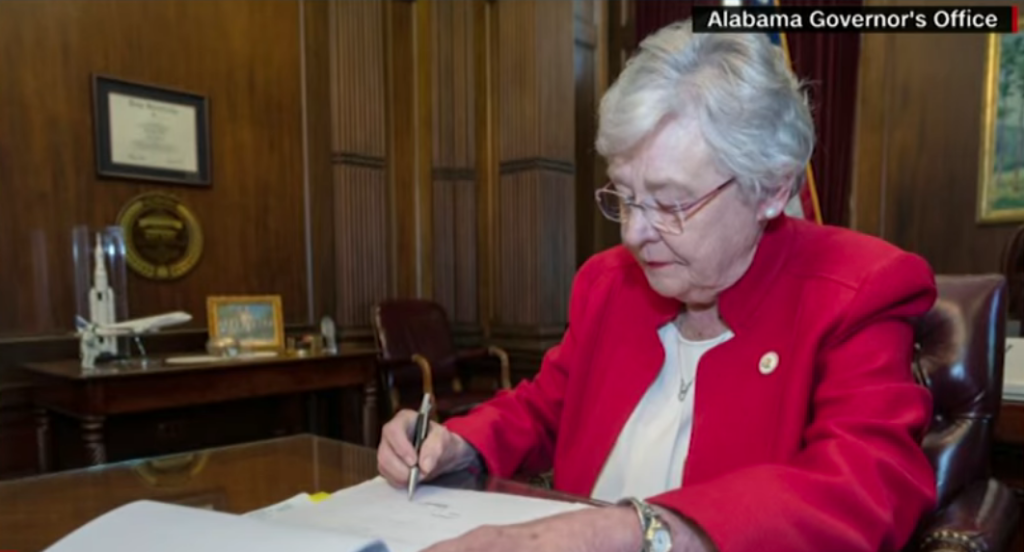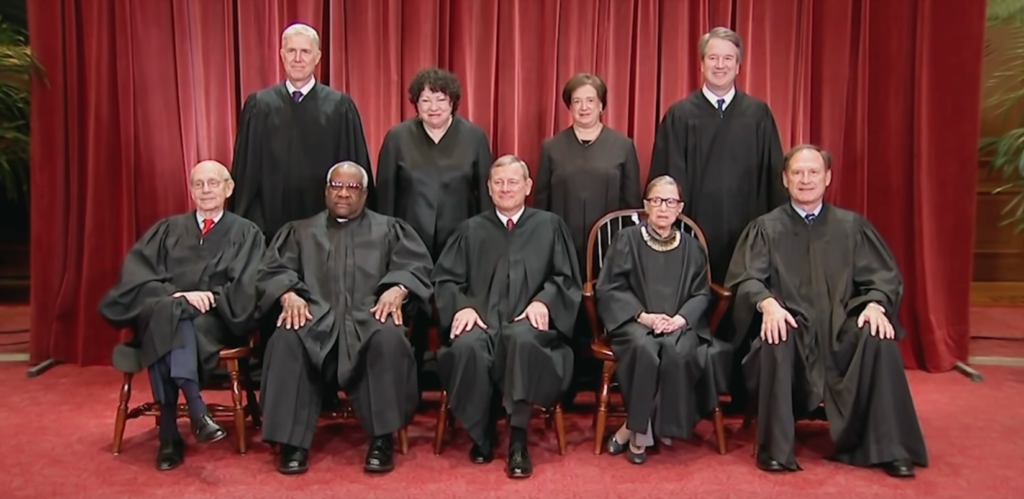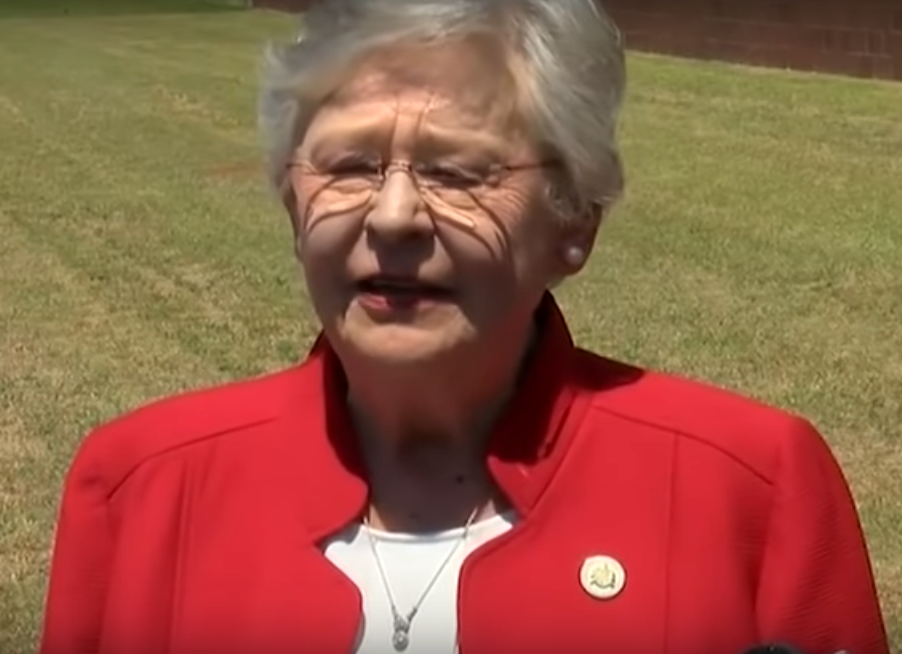On May 15, Alabama Gov. Kay Ivey signed a bill into law that bans all abortions, with the only exception being cases when the mother’s life is at serious risk.
Ivey and pro-life campaigners plan on using the bill as a means to overturn Roe v. Wade, a crucial civil rights case decided in 1973.
The bill also incriminates doctors that perform the procedure, charging them with felonies and up to 99 years in prison. It does not include exceptions for pregnancies that come from rape and incest.

Ivey explained why she signed the bill into law:
“Today, I signed into law the Alabama Human Life Protection Act, a bill that was approved by overwhelming majorities in both chambers of the Legislature,” she said in a statement Wednesday. “To the bill’s many supporters, this legislation stands as a powerful testament to Alabamians’ deeply held belief that every life is precious and that every life is a sacred gift from God.”
This bill joins similar legislature passed by the Ohio Senate and Gov. Mike DeWine on April 10, and the Georgia Senate led by Gov. Brian Kemp on May 7.
These “heartbeat” bills ban all abortions that occur five to six weeks into the pregnancy, when a heartbeat can be found. This is before most know that they are pregnant.
Previously, abortion was legal up to the point when a fetus was viable outside the womb, typically around 24 weeks into a pregnancy.
Kentucky, Mississippi, North Dakota and Iowa have also signed similar bans in recent years. These bans have been introduced in other states, including Missouri, Tennessee, Florida, Illinois, Louisiana, Maryland, Minnesota, New York, South Carolina and West Virginia.
None of these bans have been brought into effect as of this writing, but serve as messages sent to Supreme Court from lawmakers that desire to overturn Roe v. Wade.

Ivey echos this in the aforementioned statement:
“No matter one’s personal view on abortion, we can all recognize that, at least for the short term, this bill may similarly be unenforceable,” Ivey writes. “As citizens of this great country, we must always respect the authority of the U.S. Supreme Court even when we disagree with their decisions.”
She continues:
“Many Americans, myself included, disagreed when Roe v. Wade was handed down in 1973. The sponsors of this bill believe that it is time, once again, for the U.S. Supreme Court to revisit this important matter, and they believe this act may bring about the best opportunity for this to occur.”

Eric Johnston, president of the Alabama Pro-Life Coalition and a lawyer who drafted much of the bill explained why the measure is more aggressive compared to other anti-abortion legislature passed in recent years:
“The heartbeat bills are in many ways a waste of time, because you’re going below the standard of Roe,” he said. “Why not go all the way?”
Senator Linda Coleman-Madison, a Democrat and one of the four women in the 35-member Alabama Senate expressed her objections with the bill:
“We want abortions to be safe, and we want them to be few, but it should be legal, because there will be abortions,” Coleman-Madison stated.
Staci Fox, the chief executive of Planned Parenthood Southeast spoke of the damning effects these bills can have on women, even if they aren’t passed:
“They are saying to women, ‘We don’t trust you to make these deeply personal decisions,’” Fox explained. “It can be very confusing — what is real and what is not. And we’ve been hearing from concerned women as these bills bubble up.”
Henry Wolski
Executive Editor

